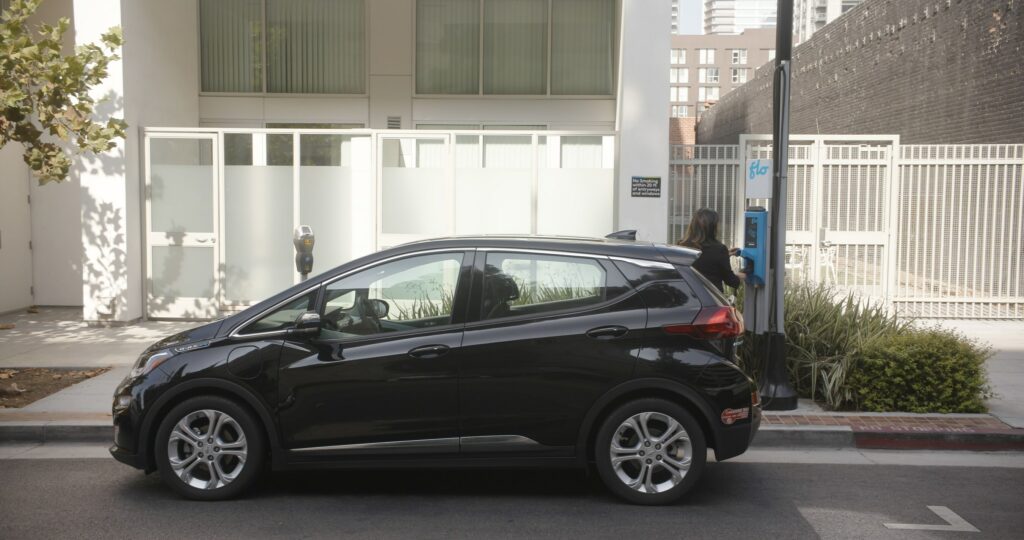CA Equitable EV Charging Act Introduced to Support Curbside EV Charging
California Assemblymember Kevin McCarty introduced Assembly Bill 2427, the Equitable EV Charging Act, in a pivotal move toward creating an inclusive electric vehicle infrastructure. The bill aims to address the disparities in EV charging access, especially among residents of multi-family dwellings who may face challenges in installing private charging equipment. By simplifying the process of curbside charging deployment, AB 2427 not only supports the transition to eco-friendly transportation but also ensures that the benefits of this transition are equitably distributed.

“The State of California is leading the way to transition our transportation system to 100 percent zero-emission vehicles, but the millions of drivers who don’t have access to at-home charging are at risk of being left behind,” said Assemblymember Kevin McCarty. “If we want all Californians to have access to electric mobility, we must provide them with convenient and affordable public charging options where they already park: the curb.”
The practical measures mandated by AB 2427 are driven by a collaborative effort, with the bill being co-sponsored by FLO EV Charging (FLO) and It’s Electric Inc (itselectric). These industry leaders in electric vehicle infrastructure development recognize the urgent need to improve charging access and equity. Under the provisions of the bill, the California Energy Commission (CEC) is assigned the task of evaluating how curbside charging could particularly benefit communities with limited access to private charging options. Furthermore, it compels the Governor’s Office of Business and Economic Development to create permitting tools and establish best practices, aimed at simplifying the integration process for local governments. This is a strategic move to promote inclusivity by encouraging local authorities to incorporate these new tools and best practices into their permitting requirements, thus facilitating developers in the strategic placement and rollout of curbside EV charging stations.
Home charging is often touted as the most convenient method for electric vehicle (EV) owners to keep their vehicles powered, combining the ease of overnight charging with the cost benefits of residential electricity rates. However, the gap in accessibility remains a significant barrier for many, particularly for residents of multi-family housing units. The California Energy Commission (CEC) reports that fewer than one-third of these residents have the capability to charge at home. This shortfall is even more pronounced among lower income individuals and groups who identify as Black, African American, Hispanic, or Latino, exacerbating disparities in access to the burgeoning EV market. AB 2427 aims to mitigate this issue by implementing equitable infrastructure strategies that would allow those currently at a disadvantage to partake in and benefit from the sustainable transportation revolution.
“If we strategically leverage the public right-of-way, we open up numerous new possibilities to increase communities’ access to EV charging right at the curb,” said Louis Tremblay, President and CEO of FLO. “But doing so requires planning and collaboration between both the state and local governments. This bill supports that work and will help expand charging access for the Californians that need it the most.”
“Beyond California’s leading example, the country needs 1.2 million more public EV chargers by 2030, particularly in dense urban neighborhoods. Today, the biggest barrier to deployment is the cost and complexity of connecting an EV charger directly to the utility’s grid. Our charging network fully avoids this barrier, enabling affordable and scalable public charging infrastructure that benefits cities, drivers, and communities,” while bringing revenue directly into communities said Nathan King, CEO and Co-Founder of itselectric.
Kevin McCarty represents California’s 6th Assembly District. The district includes the city of Sacramento, and parts of unincorporated Sacramento County. McCarty serves on the Select Committee on Electric Vehicles and Charging Infrastructure, proving a commitment to supporting the fast-growing EV revolution. When voting time comes around, remember those forward-thinking government representatives who helped clean transportation grow, as opposed to those who stood in the way of progress and cleaner air for everyone.
